
At Elevate-Derm Summer, Buchi Neita, MCMSc, PA-C, discussed enhancing dermatologic care for patients with skin of color by recognizing characteristics in common conditions and offered strategies to build rapport with patients.

At Elevate-Derm Summer, Buchi Neita, MCMSc, PA-C, discussed enhancing dermatologic care for patients with skin of color by recognizing characteristics in common conditions and offered strategies to build rapport with patients.
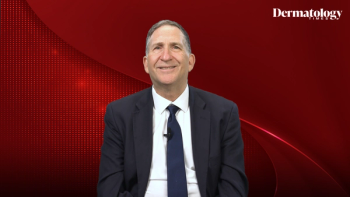
An expert discusses how to approach treatment selection in a 68-year-old Latino patient with multiple comorbidities, including chronic kidney disease, emphasizing the importance of considering injection frequency preferences, treatment burden, and the excellent safety profile of targeted biologics in older patients with complex medical histories.

An expert discusses how to manage a 32-year-old man with both prurigo nodularis and atopic dermatitis who also has asthma, explaining why dupilumab would be the preferred treatment choice over nemolizumab due to safety concerns regarding asthma exacerbation with the latter medication.

An expert discusses how to approach a 58-year-old African American woman with severe prurigo nodularis experiencing extreme itch (9/10 rating) and extensive lesions, emphasizing the need for rapid systemic intervention with nemolizumab due to its faster onset of itch relief compared with other biologics.

Shanna Miranti, MPAS, PA-C, describes her clinical approach for managing moderate to severe pediatric atopic dermatitis and how she selects between the 3 available non-steroidal topicals.
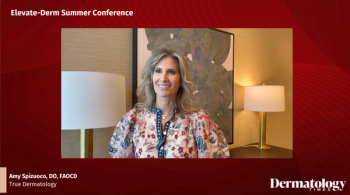
Amy Spizuoco, DO, FAOCD, shares groundbreaking insights on alopecia treatments and emerging STIs at this year's Elevate-Derm Summer Conference, enhancing patient care.

Tina Bhutani, MD, shares vital insights on psoriasis management, sleep's role in dermatology, and new alopecia areata treatments at Elevate-Derm Summer 2025.

At Elevate-Derm Summer, Shanna Miranti, MPAS, PA-C, highlighted practical strategies for isotretinoin prescribing, addressed the impact of iPLEDGE hurdles, and introduced the SkinSync podcast.

Anisha Patel, MD, highlights dermatology's vital role in cancer care, discussing skin indicators and innovative immunotherapy at her Elevate-Derm Summer sessions.

Eichenfield discussed the ever-evolving armamentarium, and how to navigate changes in the field.
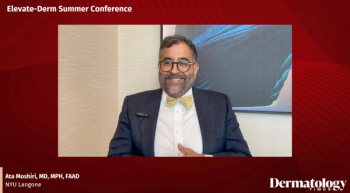
Discover key insights on melanonychia and the transformative potential of artificial intelligence from Ata Moshiri, MD, MPH, FAAD, at Elevate-Derm Summer 2025.

Traditional mouse models for EBS are limited, prompting Simpson's lab to create more accurate human-based tissue models.

Ata Moshiri, MD, MPH, FAAD, spoke about pathology interpretation and patient communication at Elevate-Derm Summer 2025, enhancing skin cancer diagnosis.

Swanson discussed new and upcoming therapeutics, and how she approaches treatment options with caregivers.

Discover Walter Liszewski, MD's insights on emerging therapies and consumer safety at Elevate-Derm Summer 2025, focusing on allergy research and treatment advancements.

Schachner was the 2025 recipient of the AAP Alvin H. Jacobs award at the 50th annual SPD meeting.

An expert discusses how the evolving CSU treatment landscape includes H1 antihistamines as first-line therapy, omalizumab as second-line, and emerging treatments like dupilumab, remibrutinib, and barzolvolimab that target different mechanisms including mast cell depletion.
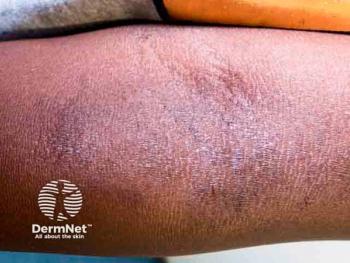
Joe Gorelick, MSN, FNP-C, discusses data on systemic treatments for atopic dermatitis presented at the Derm 2025 conference.

An expert discusses how chronic spontaneous urticaria is a recurrent inflammatory skin condition causing itchy wheals and angioedema that significantly impacts patients' quality of life, sleep, and emotional well-being.

Walter Liszewski, MD, highlights the clinical impact of patch testing and shares strategies for selecting and dosing JAK inhibitors at Elevate-Derm Summer.

Panelists discuss how an ideal topical for widespread psoriasis—including scalp and sensitive areas—would be a single, nonsteroidal, well-tolerated agent with steroidlike efficacy, capable of supporting both proactive flare prevention and rapid itch relief while improving adherence, quality of life, and long-term disease control.
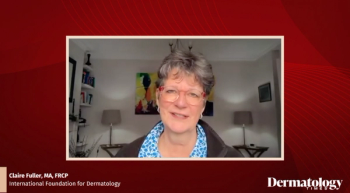
A new WHA resolution spotlights skin health, pushing member states to close care gaps and integrate dermatology into public health.

Jacki Kment, PA-C, MPAS, DFAAPA, shares how she built a successful direct pay dermatology practice to prioritize patient care and professional balance.

Panelists discuss how diagnosing and treating psoriasis in patients with skin of color requires awareness of atypical presentations, hair and cultural considerations, and systemic treatment disparities, highlighting the value of safe, broadly effective, and cosmetically acceptable topicals to support earlier and more equitable care.

With longer visits and flat-rate pricing, Kment’s practice provides personalized dermatologic care to both insured and uninsured patients.

Renata Block, DMSc, MMS, PA-C, interviews Amy Snow, PA-C, who shares how she transformed career roadblocks into a mobile dermatology clinic delivering free care and hope across Oregon.
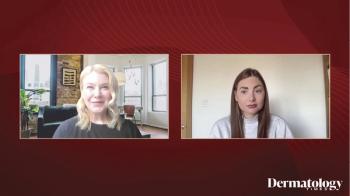
Melanoma survivors share their diagnoses and advocate for early detection, routine skin exams, and public education to save lives.

An expert discusses how successful atopic dermatitis management requires patient-centered care and shared decision-making, emphasizing that treatment selection should match disease impact rather than just body surface area, with both biologics and JAK inhibitors offering safe and effective options.

An expert discusses how patient preferences, particularly needle anxiety, must be balanced with treatment effectiveness, demonstrating that oral JAK inhibitors can be excellent alternatives for patients who cannot tolerate injectable biologics.
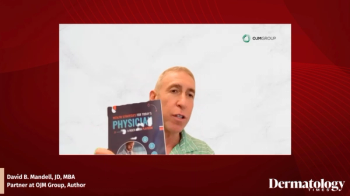
OJM Group’s David Mandell, JD, MBA, shares financial planning strategies for physicians facing new tax laws and market volatility.